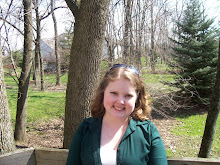From Time : a review of B XVI's beginnings as the Holy Father...(I've kept the choice bits...the whole thing is at: http://www.time.com/time/europe/magazine/article/0,13005,901051226-1142185-3,00.html) Very nice piece written as the magazine named him "European Newsmaker of the Year" (why he wasn't worthy of "person" of the Year, I don't know...why the Gates' and Bono???) Long but good....
The man who would become Pope Benedict XVI began the year behind a desk. Granted, Joseph Cardinal Ratzinger was no ordinary shuffler of Vatican papers; indeed, he had long been celebrated by Church conservatives as the architect of Pope John Paul II's doctrinal policy and vilified by progressives as the panzerkardinal who defended Catholic orthodoxy with the impenetrability of a tank. Yet Ratzinger's quotidian reality was essentially that of an exalted Catholic Church bureaucrat. Working the day shift at Church headquarters for 23 years meant studying and safeguarding the Gospels, not preaching it...
The new Pope has stepped onto the world stage with grace, warmth and an understated clout, qualities that make him our choice for European Newsmaker of the Year. A man often described as methodical and contemplative — even downright shy — has created a charisma all his own, one that seems to defy our turn-up-the-volume, look-at-me times. At 78, Benedict is the archetype of the quiet, lifelong believer who suddenly sees it is his turn to speak up, a rejuvenated old soul surprisingly well-equipped for his final mission. Father Joseph Fessio, who has known the Pope since the 1970s, said his former professor "actually seems healthier, younger, more radiant, more at peace" since assuming the papal throne.
Yet Ratzinger's peaceful countenance belies an energetic soul. The new Pope is a man on a mission, determined to reassert Catholic orthodoxy in the face of the challenge of modern times, and to make the Church once again a central part of the life of Europe, a geographical entity once coterminous with Christendom but now the most secular place on earth. Ratzinger's public image may be more cuddly than many expected it would be, but his beliefs have not budged. He has made it clear that traditional Church teachings on abortion, female clergy and homosexuality will not be challenged so long as he's in charge. (emphasis mine)
Yet away from the most controversial issues, the Pope has shown an ability to preach eloquently about the core issues of modern existence — good and evil, charity and consumerism, and the slippery slope of instantaneous self-fulfillment. Ratzinger, says a top aide to a progressive European Cardinal, "has a brilliant way of summing up a concept in a single sentence. He can clean off the window of modern history, and give you a clear vision of what's wrong with our society."
The new Pope's mission is the same one that has driven him since he was ordained in his native Bavaria. But Ratzinger's essential beliefs were rarely seen more clearly than during — and after — his predecessor's final hours. On the evening of April 1, a veteran aide to Ratzinger recounted how, that morning, his boss had gathered together employees in the doctrinal office for a reciting of the rosary, and then informed them of his visit to see John Paul. "I've never seen him that emotional," the Vatican official said. Ten days later, it fell to Ratzinger to lead the service for John Paul's funeral. It may have been the most-watched such ceremony in human history, with over 1 million faithful and dozens of world leaders jammed in and around St. Peter's Square, and tens of millions more watching on television. Ratzinger was a study in serenity, guiding the elaborate liturgy with poise, and delivering a moving, plainspoken homily... "After John Paul died," a Rome-based Cardinal recalled recently, "Ratzinger seemed to be carrying the entire Church on his shoulders." Hours before the voting was to begin, he gave his last speech as Cardinal, an impassioned defense of orthodoxy in which he denounced "the dictatorship of relativism." The next day, he was Pope. Beaming from the loggia above a drizzly St. Peter's Square, Papa Benedetto XVI told the world that the Cardinals had elected "a humble worker in the vineyard of the Lord."
He quickly got down to business. Benedict fast-tracked John Paul's road toward sainthood, named his own successor in the doctrinal office and prepared his first encyclical (due out around Christmas). In August, he visited his native Germany for World Youth Day, where he made a historic visit to the Cologne synagogue, spoke out forcefully against terrorism in a meeting with German Muslim leaders, and won over some 1 million young people — many of whom had originally signed up to see their beloved John Paul.
Benedict's public appeal comes from a manner that is always composed. His voice has a singsong cadence and his smile lights up his aging face. He doesn't mince words. "True revolution can only come from God," he told the youth gathering in Cologne. The new Pope has managed to fill John Paul's shoes without trying to match his oversized magnetism, and in so doing has revealed a side of his character that perhaps he didn't even know he had. Angelo Cardinal Scola of Venice, who has known Ratzinger since 1971, says the papacy has brought out the best in his mentor. Ratzinger, Scola told Time, "has the gift to be able to speak, at the same time, to the most simple and the most cultured of people. In 35 years, every single time I have seen or heard him, I have learned something new."
The new Pope himself seems ready to learn. Over the summer, he met in a one-month span with the leaders of the ultratraditionalist Lefebvrites and then with Hans Küng, a Swiss-born progressive theologian who has loudly disagreed with much of Cardinal Ratzinger's doctrine. He showed no sign of giving ground on either flank, but he listened. At October's Synod of Bishops, he introduced the first-ever open discussion period, and took part in it. "That the Pope himself spoke up was evidence that he wants a direct and immediate dialogue with his brother Bishops — a precious sign of a healthy collegiality," says Scola, whom Benedict picked to preside over the three-week-long meeting. And he reaches out, above all, to his flock. Benedict has already produced a series of penetrating homilies, using language that often doesn't quite sound like it should come from a Pope. In a passage on sin, he wrote of the temptation to "think that bargaining a little with evil, reserving some freedom against God, is good, perhaps even necessary. But if we look at the world, it is not so. Evil always poisons." His predecessor's poetic touch made the world take notice. Benedict will connect by the power of his prose.
But for all his learning and his sense of mission, the great surprise of Benedict's papacy so far — at least to those who didn't personally know him — has been a quiet humanity. At the end of a general audience in August, the Pope had set aside time for a long line of the ill and elderly to personally greet him. A girl, perhaps 9 or 10 years old, approached, holding her mother's hand and gripping a teddy bear. Her hair was cut short and her face was puffy from medication. The Pope looked straight in the little girl's eager eyes, and brushed his hand with a blessing across her forehead. And then, without missing a beat, he reached over and blessed the teddy bear in the same way. Among those for whom doctrine is key, Benedict's unshakable convictions will earn him both fans and foes. For those of us less sure of our faith — and even those with none at all — the new Pope reminds us, simply, that a missionary's work is never done.
Subscribe to:
Post Comments (Atom)



No comments:
Post a Comment